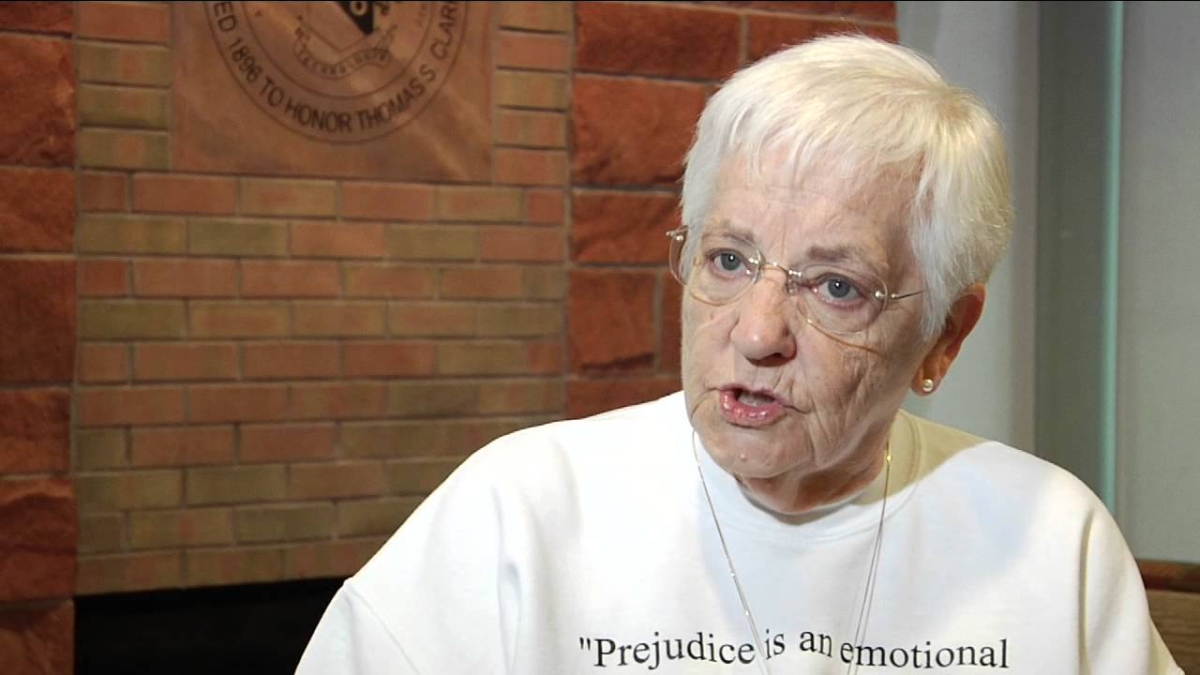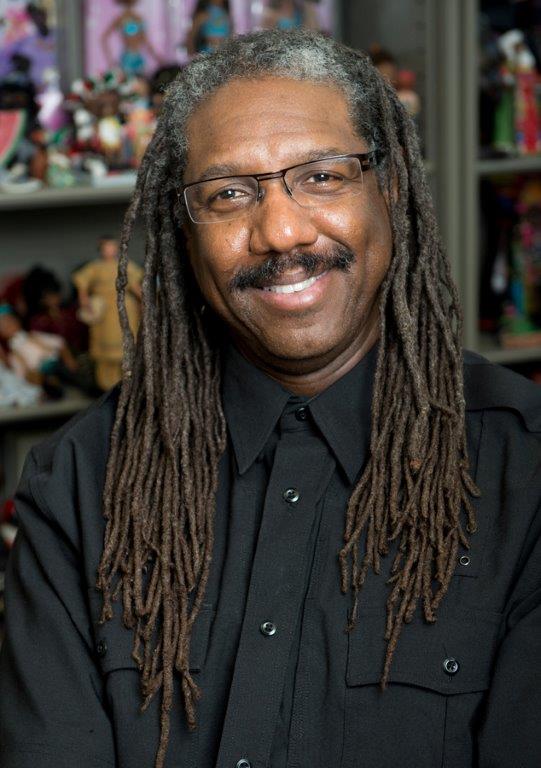ASU Project Humanities hosts 'Blue Eyes/Brown Eyes' educator Jane Elliott

Anti-racism activist Jane Elliott hates what’s happened to this country lately.
“We are less civilized now than we were 500 years ago,” Elliott said. “We should be over this. I thought we would have reached the point where we all realize there’s only one race — the human race.”
Best known as the elementary school teacher behind the famous “Blue Eyes/Brown Eyes” exercise, Elliott is coming to ASU to help people recognize, identify, and appreciate the differences on which power is assigned, and some of the ways in which we are conditioned to develop some of our self-perceptions and perceptions of others.
ASU’s Project Humanities is hosting “An Evening with Jane Elliott” on Nov. 9. The event is part of the initiative’s fall 2017 programming for its ongoing campaign, “Humanity 101: Creating a Movement.” Elliott’s talk begins at 6 p.m. at Central High School, 4525 N. Central Ave., Phoenix. Admission is free and open to the public. Go here to reserve a seat for the event.
Neal A. Lester
“We had no idea when we considered inviting Jane Elliott as our fall signature speaker that ASU and the Valley would respond so enthusiastically,” said Neal A. Lester, founding director of ASU’s Project Humanities and Foundation Professor of English. “When Eventbrite tickets became available, it was like a Beyoncé or Adele concert. They went like hotcakes.”
So much so that Project Humanities had to move to a much larger venue to accommodate the demand. Lester believes the reason is Elliott’s no-nonsense, straight talking approach to combatting racism. She introduced that approach when she exploded onto the national consciousness in April 1968 following the assassination of Martin Luther King, Jr.
At the time Elliott was a third grade teacher in an all-white elementary school in Riceville, Iowa. She involved her students in an exercise in discrimination based on eye color. It demonstrated how innocent children could turn nasty, vicious and discriminating through special treatment. She did this by telling the blue-eyed group they were intellectually superior to the brown-eyed group, and encouraged them to openly ridicule their counterparts.
Elliott also allowed the blue-eyed group to go to lunch first, gave them extra time during recess, full-time access to drinking fountains and discouraged the two groups from playing with each other. Even she was astounded by the results — derogatory comments and insults were hurled, personalities radically changed, and fights broke out.
“Children who I considered shy and academically fair were now suddenly outspoken, arrogant and condescending,” Elliott said. “The power and prejudice quickly went to their heads.”
Elliott said the big takeaway for her was that people are not born racist, rather they are born into a racist society.
“And like anything else, if you can learn it, you can unlearn it,” Elliott said.
The exercise was her attempt to help students understand some of the reasons why blacks were taking to the streets and rioting, demanding equal treatment with whites.
“People say to me, ‘How could you do that to those little white children for one day?’ I say to them, ‘Apply that feeling to how it must feel to be a person of color in this country who has been suffering from this treatment all their life,’” Elliott said. “And it’s not just one person doing this to them — it’s a society who does this to them on a daily basis.”
Elliott, 85, said even though the exercise made her an internationally famous educator, she and her family paid a heavy price. She said teachers at her school wouldn’t talk to her, town leaders made her a pariah and she received numerous death threats. She also admitted family members didn’t like her at times.
"A man who is writing a book about the subject asked my daughter the other day, ‘Did you hate your mother?’” Elliott said. “She said, ‘Yes, I hated my mother. I hated her because she was taking away all of my friends and causing me a whole lotta pain.’ All four of my kids went through that phase — ‘Mom, if you just shut up we’d be alright.’”
But Elliott couldn’t shut up, or sit quietly and do nothing. She used every platform possible — a PBS documentary called “Eye of the Storm,” appearances on “The Tonight Show Starring Johnny Carson” and “The Oprah Winfrey Show,” and numerous newspaper and magazine articles — to deliver her message.
“It’s all the result of ignorance based on skin color — the ignorance of thinking you can do this forever and get away with it,” Elliott said. “There is nothing subtle about racism when it happens to you on a daily basis, and today that extends to [the LGBTQ community]. It’s constant for them. It’s unacceptable behavior in a democracy.”
Since then Elliot has conducted the same exercise in workshops with people of all ages in cities all over the United States and in several countries.
Elliot said America was making positive strides regarding racism until recently. She believes the surge of white nationalist groups espousing separatist ideologies, anonymous hate speech through social media and the Internet, and politicians and citizens not speaking up when they see overt discrimination, is dividing the country.
That, she said, was recently underscored when she received a threatening phone call at her Iowa residence — the first such threat in almost 15 years.
“I think we have proof now that if you don’t put a stop to racist remarks or make people aware of what the problem is, you end up where we are right now,” Elliott said.
“These are dangerous times.”
For more information, call 480-727-7030 or visit the Project Humanities website.
Top photo courtesy of YouTube.com.
More Arts, humanities and education

ASU professor's project helps students learn complex topics
One of Arizona State University’s top professors is using her signature research project to improve how college students learn science, technology, engineering, math and medicine.Micki Chi, who is a…

Award-winning playwright shares her scriptwriting process with ASU students
Actions speak louder than words. That’s why award-winning playwright Y York is workshopping her latest play, "Becoming Awesome," with actors at Arizona State University this week. “I want…

Exceeding great expectations in downtown Mesa
Anyone visiting downtown Mesa over the past couple of years has a lot to rave about: The bevy of restaurants, unique local shops, entertainment venues and inviting spaces that beg for attention from…


